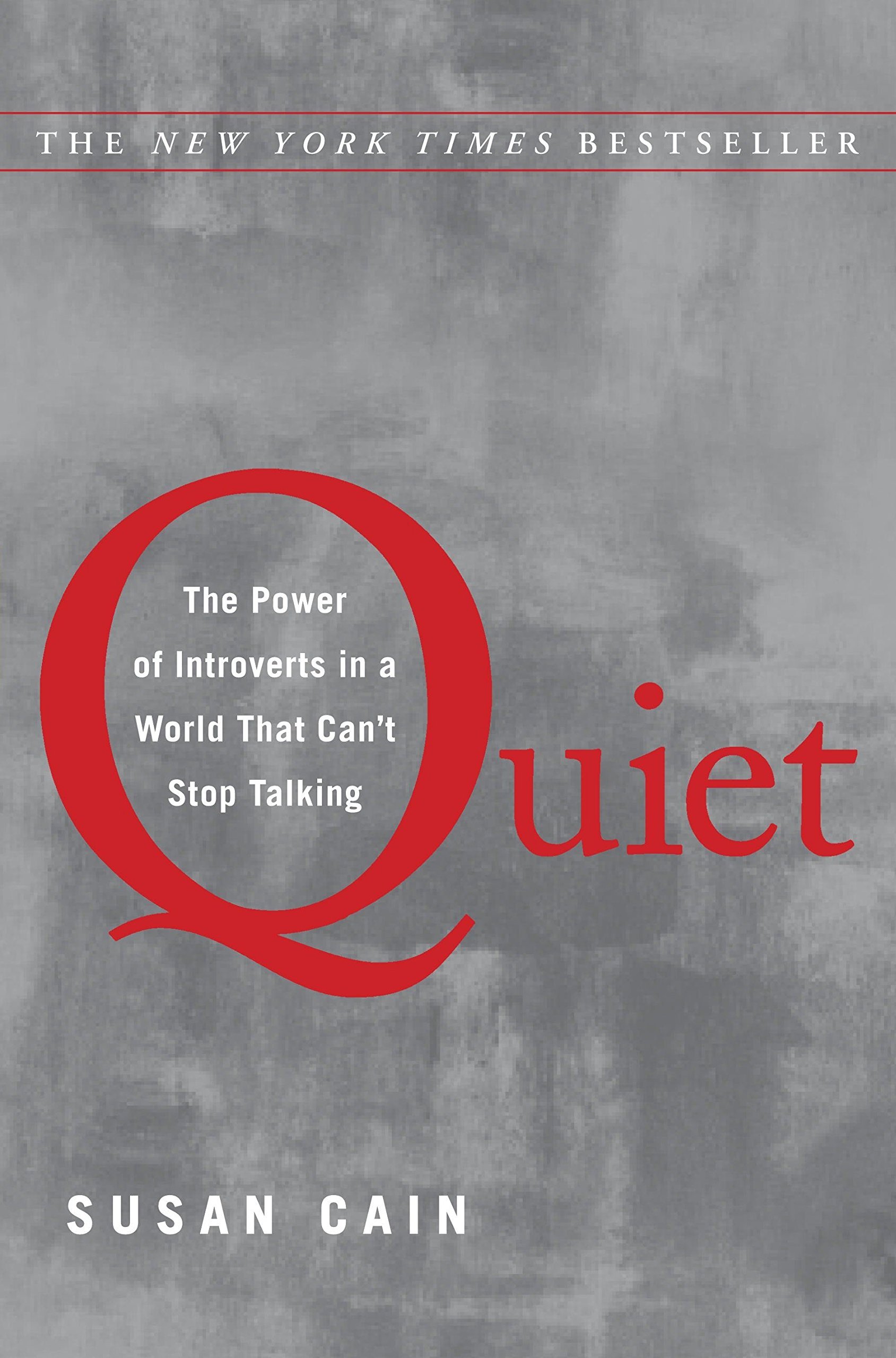A Love Letter to Introverts
I picked up a book a few months ago called Quiet by Susan Cain. I picked it up with a vague understanding of what it would entail… “the power of introverts in a world that can’t stop talking,” the subtitle explained. For a girl who has broken out in hives for nearly every presentation since eighth grade, the girl who has wondered how to come across ‘warmer’ in first-time meetings, or the girl who felt most at home with a book on a quiet Saturday - it was an empowering and affirming read. For so long, introversion seemed to me to be more of an unfortunate affliction than a natural, valuable predisposition. And reading the book came at an interesting time in history…
The past year has leant itself to the dispositions of introverts. It is true that introverts, myself included, need social interaction as much as the next person for a sense of purpose and belonging - introverts can still get lonely. At the same time, a year of social distancing has also given them a degree of relief from the ever-present demands and structures of living in a world designed for extroverts (especially in the West).
In North America, it is estimated that a third to a half of the population is introverted, although you wouldn’t think that the case if you were to start to examine some of our societies’ most valued traits. People skills, the ability to thrive under pressure, risk-tolerance, optimism and an outgoing demeanour are just a few of the skills that are rewarded in today’s business culture. It is also what makes it easier for extroverts to succeed in work, the initial stages of dating, and public perception.
While the skills and predispositions flexed by extroverts are important - necessary to the functioning of our society and admirable no doubt, this pandemic has given us the opportunity to start to revalue and rethink the importance of some of the unique, essential traits of introverts. They have an important role to play in the ecosystem of decision-making, society-building, and group dynamics, a role that is too often overlooked (or outshouted) in a crowd. A few of these valuable approaches include:
1) Solitude - the enemy of Groupthink: What’s interesting about the world is that so many of our societies’ most poignant questions and important problems are solved within a group. It is a central tenant of democracy and a value instilled all the way from our families to our workplaces. The troubling fact of this approach however is that when we’re in a group, we’re far more likely to come to the wrong conclusions about objective questions. It’s not just fear of judgement (although that plays a role), it’s also a physiological issue - when we’re in a group, we use the frontal, decision-making region of the brain far less and the area to do with perception, far more. It’s not just peer pressure, it’s peer proximity that changes our view of problems.
Solitude, a trait more commonly associated with introverts, allows for the opportunity for independent problem analysis and the chance to find solutions outside of an influenced environment. By allowing independent thinking, it is also far more likely for more than one solution to be found.
2) Solitude - a key to exceptional achievement: Solitude is vital to something called Deliberate Practice. Have you ever heard of the 10,000 hours rule? Supposedly, the key to mastery is practicing for 10,000 hours. Solitude is an important aspect of that approach, since those 10,000 hours only count if you are practicing the correct way.
By practicing alone, you’re able to identify what needs addressing, work to upgrade and then revise. If you are practicing without that time to check your own approach, it can actually be counter productive and reinforce bad habits. With that said, the more creative people (exceptionally creative) are typically socially-poised introverts. Solitude can be a catalyst to innovation, since they give themselves the time to practice, revise, refine their skills. And then their remaining social energy can be used to share these skills with the group.
3) Sensitivity as a superpower: Dr. Elaine Aron is a leading psychologist on the disposition she has labeled “high sensitivity” - similar to what other scientists call introverts. Highly sensitive people tend to be keen observers - they look before they leap. They limit surprises in their life and have difficulty being observed or judged for worthiness (i.e. dating, interviews). But they are also more philosophical or spiritual in orientation. They dislike small talk and think with more complexity which is also why they enjoy talking about personal problems in social settings (whereas others might deem this too heavy). They are often creative and intuitive. They dream vividly. They love music, nature, art, physical beauty. They feel exceptionally strong emotions - both joy but also sorrow, melancholy and fear. They notice subtleties others miss such as shifts in mood or lighting being too bright. They are also highly empathetic and have unusually strong consciousnesses - therefore feeling tragedy/cruelty more distinctly.
These traits are important in the world - they are the DNA for the great artists of our time, great humanitarians, great psychologists and great thinkers. They encourage us to ponder the details; to allow ourselves to feel. They dive deep into life.
With that said, extroverts are some of my favourite people; they make life exciting, they bring energy and vitality to a situation, and their confidence is thrilling to witness. My only hope is that as we come out of this pandemic and start to reenter situations that give introverts pause, we can also adjust our way of thinking about introversion:
There is power in both ways of being (intro and extro).
All of us need connection, it might just manifest in different ways.
We should allow each other the space to be ourselves; but also give introverts the time and space to contribute in a way that is more suitable for them, both in school, in the workplace and within our own circles.










